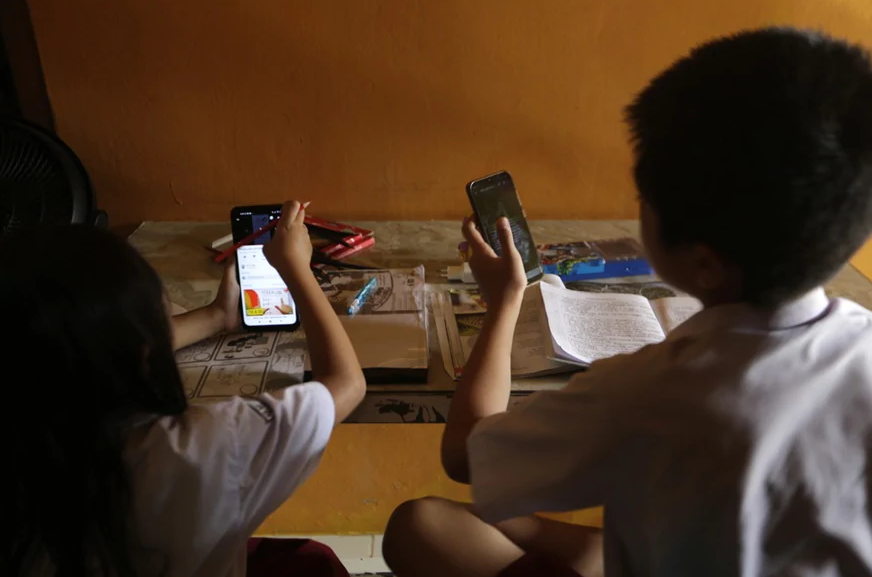Students use cell phones to carry out online learning amid the Covid-19 pandemic in Banda Aceh, Indonesia, October 20, 2020. Keystone / Hotli Simanjuntak Infectious diseases, extreme weather events and cybersecurity problems pose key threats to society in the next two years, the World Economic Forum (WEF) warns. The Covid-19 pandemic looks set to have a lasting impact in the next ten years. “In 2020 we saw the effects of ignoring preparation and ignoring long-term risks,” the WEF said in a statement on Tuesday at the launch of its annual risks report. “The Covid-19 pandemic has not only claimed millions of lives, but it also widened long-standing health, economic and digital disparities.” This gap between the haves and the have nots risks widening and challenging
Topics:
Swissinfo considers the following as important: 3.) Swiss Business and Economy, 3) Swiss Markets and News, Featured, newsletter, Politics
This could be interesting, too:
Investec writes The Swiss houses that must be demolished
Claudio Grass writes The Case Against Fordism
Nachrichten Ticker - www.finanzen.ch writes Die Performance der Kryptowährungen in KW 9: Das hat sich bei Bitcoin, Ether & Co. getan
Nachrichten Ticker - www.finanzen.ch writes Wer verbirgt sich hinter der Ethereum-Technologie?

Students use cell phones to carry out online learning amid the Covid-19 pandemic in Banda Aceh, Indonesia, October 20, 2020. Keystone / Hotli Simanjuntak
Infectious diseases, extreme weather events and cybersecurity problems pose key threats to society in the next two years, the World Economic Forum (WEF) warns. The Covid-19 pandemic looks set to have a lasting impact in the next ten years.
“In 2020 we saw the effects of ignoring preparation and ignoring long-term risks,” the WEF said in a statement on Tuesday at the launch of its annual risks report. “The Covid-19 pandemic has not only claimed millions of lives, but it also widened long-standing health, economic and digital disparities.”
This gap between the haves and the have nots risks widening and challenging social cohesion, the Geneva-based organisation said. Young people risk “missing out altogether on opportunities in the next decade”.
The pandemic poses a risk for the global economy in the next three to five years, the WEF predicted, and in the next five to ten years it will “weaken geopolitical stability”.
“Financial, digital and reputational pressures resulting from Covid-19 also threaten to leave behind many companies and their workforces in the markets of the future,” the statement said.
Medium-term worries include burst asset bubbles and debt crises, the report found, while the biggest long-term concerns were of the use of weapons of mass destruction and of state collapses.
“As governments, businesses and societies begin to emerge from the pandemic, they must now urgently shape new economic and social systems that improve our collective resilience and capacity to respond to shocks while reducing inequality, improving health and protecting the planet,” said Saadia Zahidi, managing director at the WEF.
Virtual Davos
Next week 1,500 world leaders, businesspeople and members of civil society will take part in a virtual Davos Agenda event, instead of the traditional January event in the Swiss ski resort. The event is due to be opened by Guy Parmelin, who holds the rotating Swiss presidency this year. Chinese President Xi Jinping and French President Emmanuel Macron are expected to attend, as well as German Chancellor Angela Merkel.
Leaders will also hold a face-to-face meeting in Singapore in May.
The Global Risks Report 2021 was compiled together with insurance companies Zurich and Marsh & McLennan and South Korea’s SK Group.
Tags: Featured,newsletter,Politics








